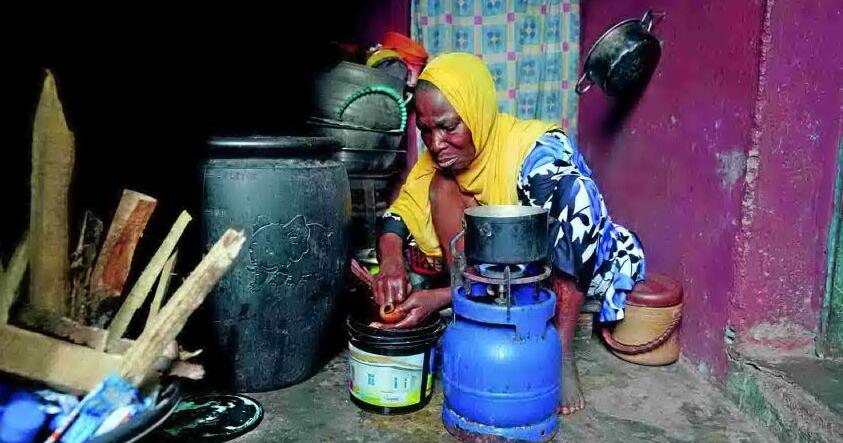IBADAN, Nigeria — In her cramped, dimly lit kitchen, Idowu Bello leans over a gas cooker while stirring a pot of eba, the thick starchy West African staple made from cassava root. Kidney problems and chronic exhaustion forced the 56-year-old Nigerian woman to retire from teaching, and she switches between cooking with gas or over a wood fire depending on the fuel she can afford.
Financial constraints also limit the food Bello has on hand even though doctors have recommended a nutrient-rich diet both to improve her weakening health and to help her teenage daughter, Fatima, grow. Along with eba, on the menu today is melon soup with ponmo, an inexpensive condiment made from dried cowhide.
“Fish, meat, eggs, fruits, vegetables and even milk are costly these days,” Bello, 56, said, her lean face etched with worry.
If public health advocates and the Nigerian government have their way, malnourished households in the West African nation soon will have a simple ingredient available to improve their intake of key vitamins and minerals. Government regulators are set to launch a code of standards for adding iron, zinc, folic acid and vitamin B12 to bouillon cubes at minimum levels recommended by experts.
People are also reading…
While the standards will be voluntary for manufacturers for now, their adoption could help accelerate progress against diets deficient in essential micronutrients, or what is known in nutrition and public health circles as “hidden hunger.” Fortified bouillon cubes could avert up to 16.6 million cases of anemia and up to 11,000 deaths from neural tube defects in Nigeria, according to a new report from the Bill & Melinda Gates Foundation.
“Regardless of economic situation or income level, everyone uses seasoning cubes,” Bello said as she unwrapped and dropped one in her melon soup.
Making do with smaller portions and less-nutritious foods is common among many Nigerian households, according to a recent government survey on dietary intake and micronutrients. The survey estimated that 79% of Nigerian households are food insecure.
The climate crisis, which has seen extreme heat and unpredictable rainfall patterns hobble agriculture in Africa’s troubled Sahel region, will worsen the problem, with several million children expected to experience growth problems due to malnutrition between now and 2050, according to the Gates Foundation report.
Dietary deficiencies of the micronutrients the government wants added to bouillon cubes already have caused a public health crisis in Nigeria, including a high prevalence of anemia in women of child-bearing age, neural tube defects in new born babies and stunted growth among children.





